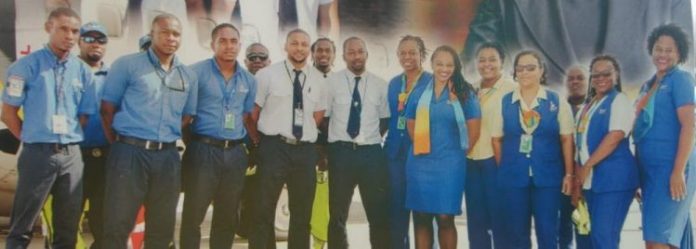The long-running matter of the beleaguered former LIAT workers seeking their lawfully entitled severance from the airline had become a national and regional embarrassment.
That shame stretched from Barbados to St Vincent and up to Antigua and Barbuda where the regional carrier had moved its headquarters some years ago from its original home in Bridgetown.
LIAT, in its heyday, played a critical role in the movement of people and cargo around the Caribbean. It was a major contributor to regional integration as people travelled to experience the food, culture and sporting connections we share.Business and conference activity was also enhanced by LIAT’s extensive flight network. But like too many commercial ventures owned by governments in the region, inefficiency and bureaucracy became endemic problems.
Already on its back and facing prolonged cash flow issues, when the COVID-19 pandemic hit, the airline was grounded. However, unlike other major carriers that were resuscitated after the pandemic, LIAT entered the intensive care unit with little hope of being revived.
With the Antigua and Barbuda government going alone, the Gaston Browne administration was left with the task of resolving the human resources fallout.
Caught in the middle were almost 90 Barbadian former LIAT employees. Their financial suffering has been well documented and many of us found the case they made for the Barbados government to come to their rescue compelling.
In fact, most observers of labour issues could not understand how former employees of an airline owned by regional governments – Antigua and Barbuda, Barbados, Dominica, and St Vincent and the Grenadines – would have been left to languish in the way LIAT workers – big men and women, were forced to beg alms.










